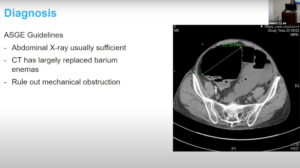NEW YORK (Reuters Health) – In a phase III study of patients with progressive well-differentiated pancreatic islet cell tumors, treatment with the tyrosine kinase inhibitor sunitinib significantly prolonged progression-free survival with “acceptable” safety.
“This important finding opens possibilities for future treatment of pancreatic islet cell tumors,” Dr. Eric Raymond, from Hospital Beaujon, Clichy, France and colleagues conclude in an abstract released today at the European Society for Medical Oncology’s (ESMO) 11th World Congress on Gastrointestinal Cancer in Barcelona, Spain.
Sunitinib is approved for the treatment of advanced renal cell carcinoma and imatinib-resistant/intolerant gastrointestinal stromal tumors. “Advanced pancreatic islet cell tumors remain a disease for which few medical options have been tested in rigorous controlled trials,” Dr. Raymond and colleagues note.
In an earlier phase II study, sunitinib was associated with a 16.7% overall objective response rate in 66 patients with pancreatic islet cell tumors.
In the phase III study reported today, the investigators assessed the safety and efficacy of placebo or sunitinib 37.5 mg/day continuous daily dosing, with best supportive care, in 154 patients with local, locally advanced, or metastatic, well-differentiated pancreatic islet cell tumors not amenable to curative therapy. All of the patients had experienced disease progression in the prior year.
At an interim analysis, median progression-free survival was 11.1 months with sunitinib versus 5.5 months for placebo. The hazard ratio for progression-free survival was 0.397 in favor of sunitinib (p < 0.001). “Analysis of survival is ongoing;” the researchers note, “5 deaths have been observed in the sunitinib arm and 15 in the placebo arm.” Based on the recommendation of an independent Data Monitoring Committee, the study was halted early and patients on placebo were given the opportunity to cross over to sunitinib. Sunitinib demonstrated “acceptable” safety in this patient population, the study team reports. The most common adverse events with sunitinib were diarrhea, nausea, vomiting, asthenia and fatigue. The most frequently reported grade 3/4 adverse events with sunitinib included neutropenia (12.3%), hypertension (8.8%) and abdominal pain, diarrhea, hypoglycemia, and palmar-plantar erythrodysesthesia (7.0% each).




